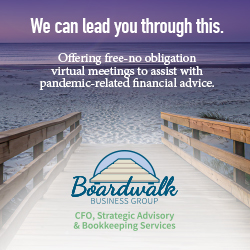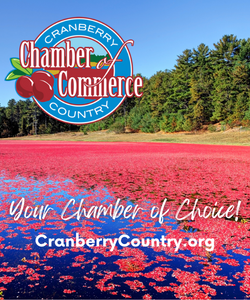Contributing writer Doug Karlson recently interviewed Cape Cod Chamber of Commerce CEO Wendy Northcross for our September issue.
How has the pandemic affected the overall Cape Cod economy?
It is too soon to tell the overall economic impact, since we are still in the midst of the pandemic and constrained standards for operating businesses and organizations. We are in the midst of our second business survey to measure economic movement since April and hope to cast a wide net to capture a true picture.
We know that summer vacation business has been a bright spot here for the travel industry. Through Aug. 1, the 28-day running total for occupancy in hotels/motels has been down 31 percent vs. the same time last year. Since August is traditionally a very strong month, and this year appears to be no exception, we are anxiously awaiting the data for hotel and short-term rental transactions. Some business activity, as you know, has had a very robust year, including real estate sales, auto and boat sales, construction and home maintenance services. This is positive as those sectors are very predominant on the Cape.
What do you think will be the longer-term economic impacts as we go into the fall and winter?
With so much disruption, it is very hard to predict the fall and winter, especially as the virus is still with us. Because the economy was quite strong prior to the pandemic, we hope that we can recover more quickly than prior deep recessions/depressions. But consumer confidence will drive the recovery, and we certainly have a longer road ahead than we had imagined back in March.
In terms of fall and winter, we will not see the group travel business of the past (motor coach tours, weddings, meetings, events.) This business is greatly dampened due to the safety protocols that limit size of gatherings. Outdoor dining has been a help to restaurants, but as weather changes, of course this will impact that sector. We are launching a “Second Summer” campaign the last week of August, promoting fall travel. We will follow that with holiday-themed promotions.
How would you describe the work the Chamber task force did in analyzing the problem and in advocating at the Statehouse? Were lawmakers responsive? Were regulations and guidelines well suited to the Cape business community, or would you have liked to have seen something different?
The Cape Cod reopening task force was convened to rapidly dispense factual information to businesses and government on reopening, and to advocate for regional needs and nuances with the regulatory authorities. Through Linda Markham, president of Cape Air and a chamber officer who was also appointed to the Governor’s Reopening Advisory Board (RAB), we secured an invitation along with the 1Berkshire business organization to make the case to the RAB that our regions are inordinately dependent on travel and tourism and if we missed the peak season, there would be massive business failures and greater unemployment to follow.
The national traveler sentiment and economic surveys indicate that the economic impact is most severe in urban areas, and that only 35 percent of people in the U.S. took a summer vacation. As health numbers stay steady, they expect business activity to return over the next three years, especially for travel and tourism.
We were immediately asked to sit on a tourism subgroup, and we worked with them to shape how to safely reopen the cultural institutions (as the restaurant and lodging associations have worked to shape protocols for those sectors.) We also know they listened to us in terms of where the bulk of our visitors originate, and helped us keep those markets open (with safe health numbers being the overarching deciding factor on all the protocols.)
While we understand the need to control and eradicate the virus, we understand the frustration of many businesses [caused] by the pace of restoring business levels. We continue to advocate strongly on how to safely accommodate business activity – most recently, how to host outdoor events at venues that are regulated, licensed, inspected, monitored and insured vs. driving this activity underground at private homes. We are also working with the local schools to share real time health data for the region, and educate them on rapid response testing, and cleaning protocols. We also helped amend the protocols for childcare providers so they could come back online safely
For more information, check the chamber’s weekly e-newsletter and the Cape Cod Commission’s dashboard, https://datacapecod.com.)

























